Highlights: Top 15 energy transition projects
Reading time: 4 minutes
A CO2 neutral port by 2050: that is our goal. So which projects are already up and running? And which projects are going to really make a difference? Check out the top 15 energy and raw material transition projects of 2024, in random order.
Go directly to one of the 15 projects:
- WarmtelinQ
- Porthos
- Rotterdam hydrogen pipeline
- Delta Rhine Corridor
- Sea wind reaches land
- Sif expansion
- Holland Hydrogen 1
- Power grid upgrade
- Importing hydrogen
- Shell biofuels refinery
- Neste biofuels refinery
- ZES making inland shipping even more sustainable
- Shore power
- SK tes
- Pryme
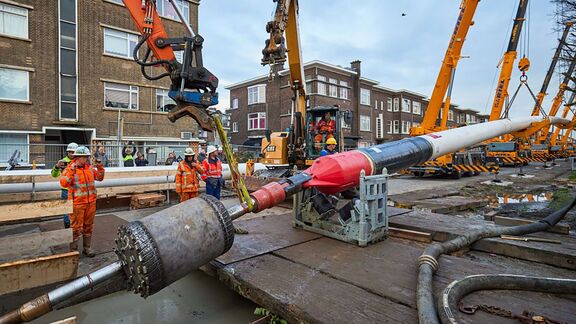
WarmtelinQ
WarmtelinQ is the underground pipeline used to transport residual heat from the port of Rotterdam to The Hague to heat homes and businesses. The pipeline is now being constructed.
Porthos
Porthos is developing a project to transport CO2 from industrial companies in the port of Rotterdam and store it in empty gas fields under the North Sea. Thanks to Porthos, some 2.5 million tonnes of CO2 will be captured annually and stored permanently. CO2 storage is therefore an essential measure through which industrial companies are contributing to the Dutch climate targets. The construction of Porthos began in 2024. Porthos is expected to be operational from 2026 onwards.
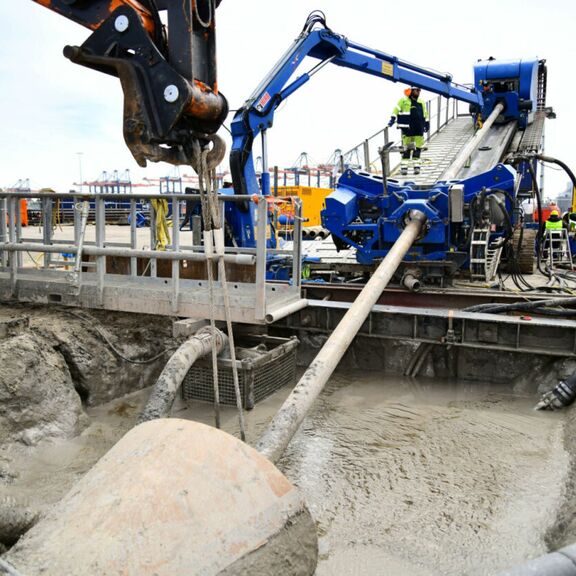
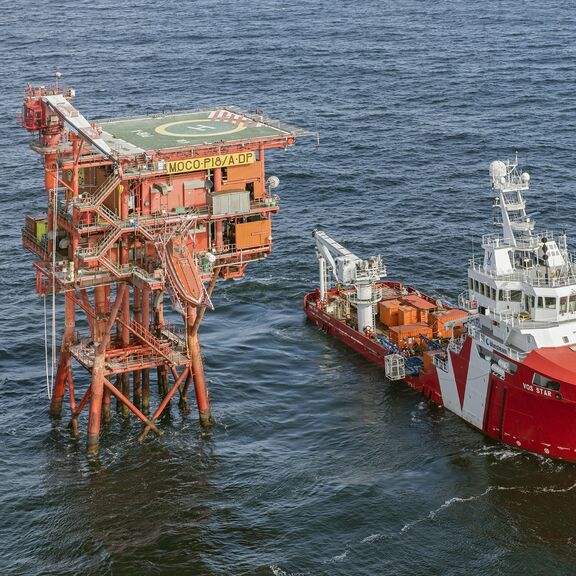
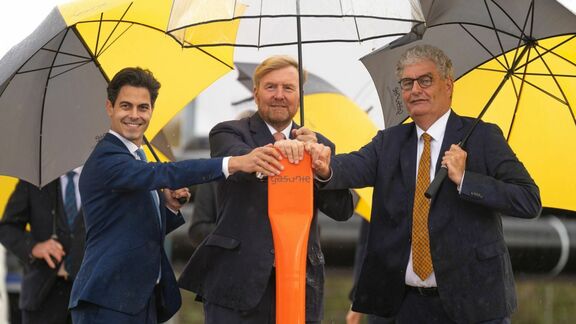
Rotterdam hydrogen pipeline
The Port of Rotterdam Authority and Gasunie are working together to develop a new hydrogen pipeline which will form the backbone of the future hydrogen infrastructure in Europe’s largest port. The pipeline is currently being constructed. The parties are planning to start using the main pipeline in the port in 2025. Companies wishing to use or produce hydrogen are welcome to connect to this open access hydrogen pipeline.

Delta Rhine Corridor
The Port of Rotterdam Authority and various industry partners support the development of the Delta Corridor project, which consists of a bundle of pipelines connecting the port of Rotterdam, Chemelot, Moerdijk and the German Rhineland.
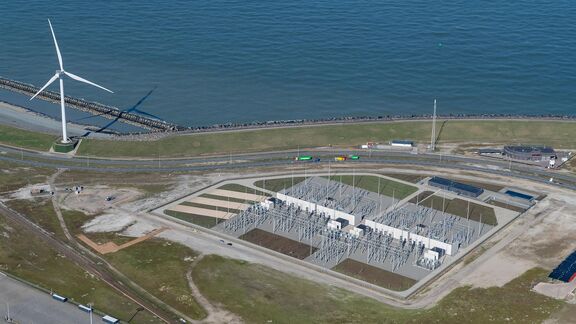
Sea wind reaches land
The Hollandse Kust Zuid offshore wind farm has now been connected to the Rotterdam high-voltage grid. Between now and 2030, it will be joined by two further offshore wind farms: IJmuiden Ver (plot 3-6) and Nederwiek (plot 2). In total, these offshore wind farms together will provide 7.4 GW of capacity.
Sif expansion
Sif is expanding production capacity for wind turbine foundations. The company is building a new factory on the Maasvlakte to construct foundations for even larger offshore wind turbines. These monopiles – steel foundation piles for offshore wind turbines – represent an important contribution by Sif to greater sustainability in the Netherlands.
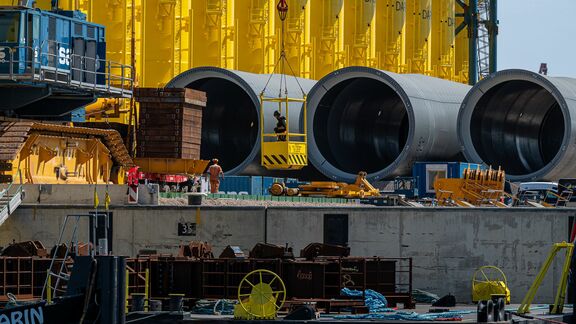
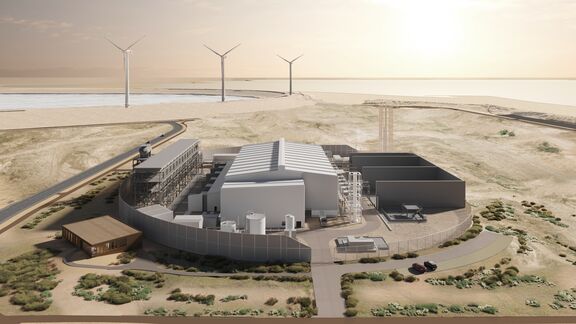
Holland Hydrogen 1
Construction of Europe’s largest green hydrogen plant is underway at the Maasvlakte conversion park. The 200 MW electrolyser will be built on the Maasvlakte in the port of Rotterdam and will be able to produce 60,000 kilograms of renewable hydrogen per day from 2025 onwards.
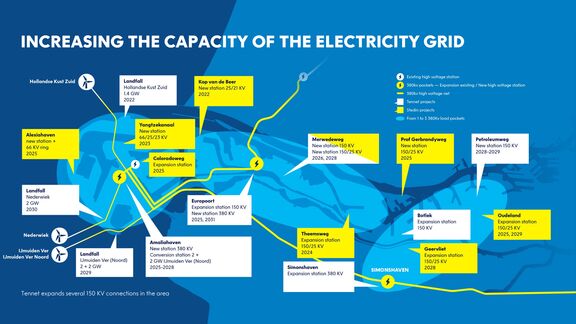
Power grid upgrade
TenneT and Stedin are carrying out a series of projects to upgrade the power grid to ensure that industrial companies have enough (green) power to become more sustainable.
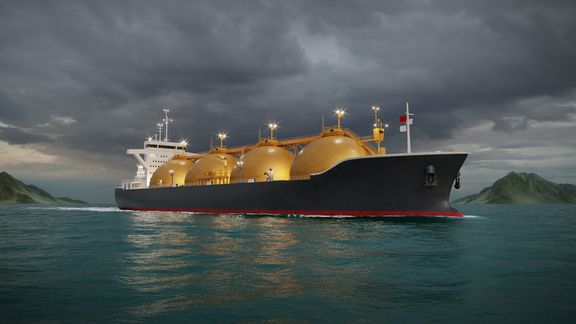
Importing hydrogen
Projects are underway with several dozen countries and regions to initiate hydrogen imports. Energy-intensive industries (such as some of the chemical and refining industries) need an effective renewable substitute for natural gas, and that is hydrogen. For this reason, high levels of hydrogen demand are expected from customers in Northwest Europe.
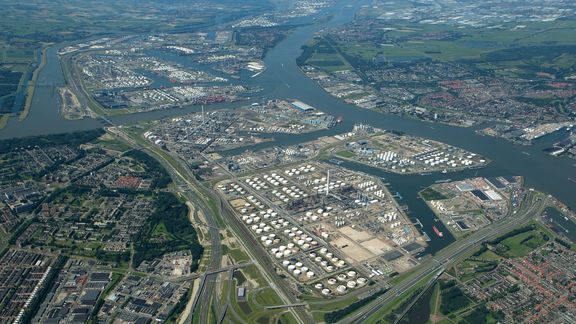
Shell biofuels refinery
Shell is building a large biofuels plant in Pernis, mainly aimed at producing sustainable fuel for aviation. The use of fuels from this plant will lead to a 2.8 Mton reduction in CO2 emissions compared to the use of fossil kerosene and diesel.
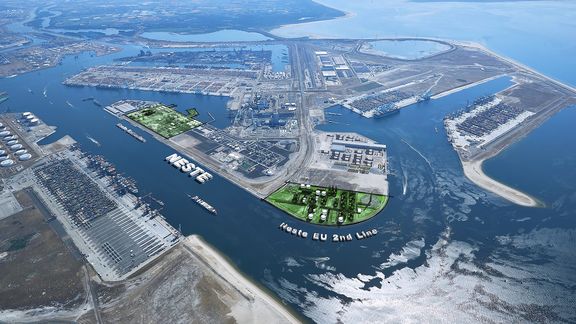
Neste biofuels refinery
On the Maasvlakte, Neste is building a new biofuel plant, primarily to produce sustainable fuel for aviation. It is scheduled to enter operation in 2026.
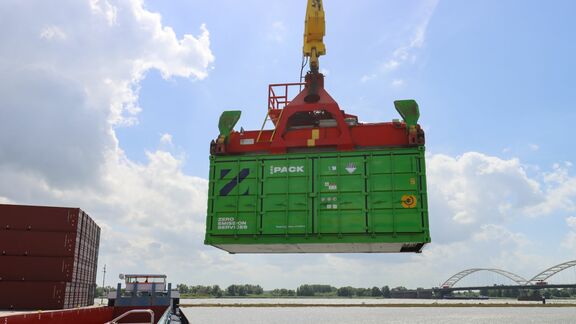
ZES making inland shipping even more sustainable
Zero Emission Services (ZES) makes sustainable inland navigation possible with exchangeable energy containers. The first Dutch inland vessel to use ZES for propulsion is the Alphenaar. The vessel sails between Alphen aan den Rijn and Moerdijk for Heineken brewery, the first end customer of ZES.
Shore power
Shore power for shipping is being developed at several sites. Construction has started at the cruise terminal. Using shore power reduces not only CO2 , but also nitrogen and particulate matter emissions. On top of that, noise levels from docked cruise ships also decline significantly.
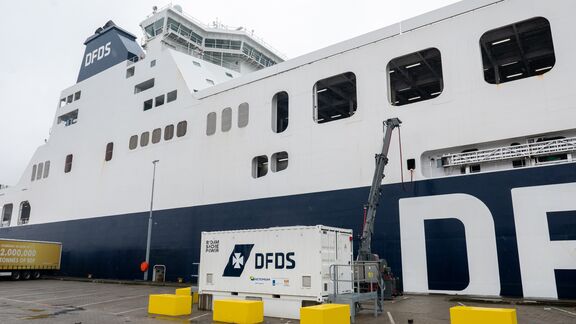
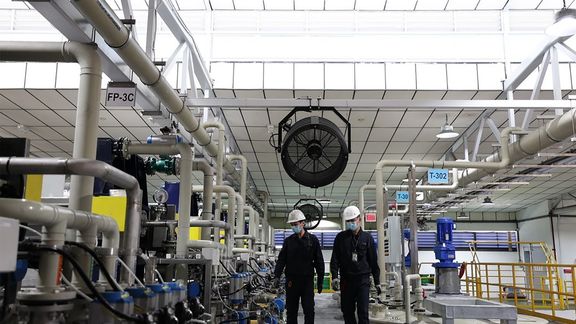
SK tes
SK tes, one of the world's largest companies for recycling batteries and electronic waste, continues to build on its’ new plant in the port of Rotterdam.
Read the article and watch the video.
Pryme
Pryme recycles plastic waste into new raw material for the chemical industry. Pryme launched its first plant in early 2024. It is capable of converting 40,000 tonnes of plastic waste per year into 30,000 tonnes of pyrolysis oil.
All projects on the map
In addition to the 15 projects in the overview, many more energy and raw material transition projects are underway at the port. More than 80 initiatives in the energy and raw material transition have been compiled on an interactive map.